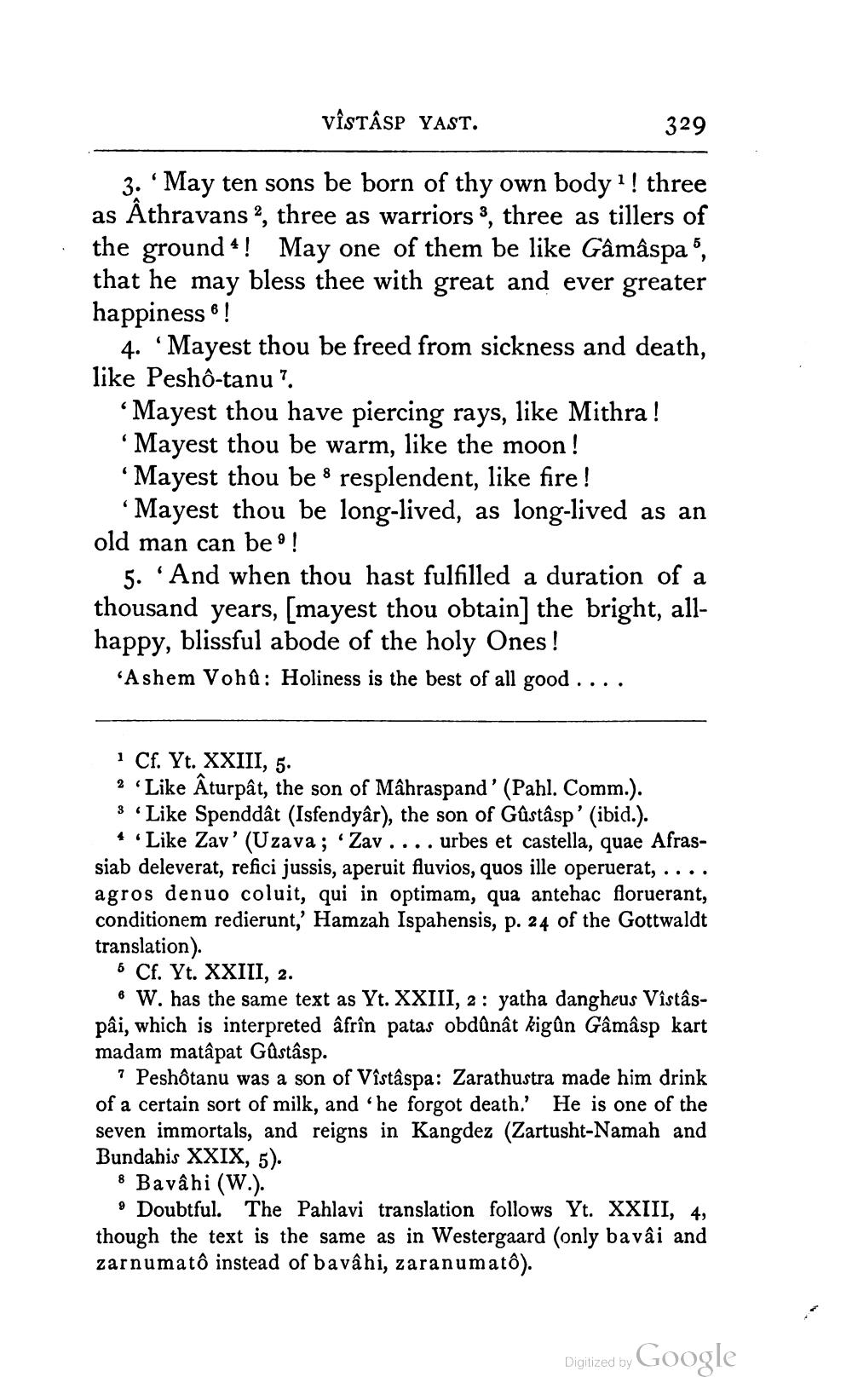________________
VISTÂSP YAST.
329
3. May ten sons be born of thy own body?! three as Athravans 2, three as warriors 3, three as tillers of the ground 4! May one of them be like Gâmâspa 5, that he may bless thee with great and ever greater happiness !
4. "Mayest thou be freed from sickness and death, like Peshô-tanu?
Mayest thou have piercing rays, like Mithra! Mayest thou be warm, like the moon ! Mayest thou be 8 resplendent, like fire !
Mayest thou be long-lived, as long-lived as an old man can be o !
5. 'And when thou hast fulfilled a duration of a thousand years, [mayest thou obtain the bright, allhappy, blissful abode of the holy Ones !
"Ashem Vohậ: Holiness is the best of all good ....
1 Cf. Yt. XXIII, 5. 2 Like Âturpât, the son of Mâhraspand' (Pahl. Comm.). 3 Like Spenddât (Isfendyâr), the son of Gâstâsp' (ibid.).
+ Like Zav' (Uzava; · Zav .... urbes et castella, quae Afrassiab deleverat, refici jussis, aperuit fluvios, quos ille operuerat, .... agros denuo coluit, qui in optimam, qua antehac floruerant, conditionem redierunt,' Hamzah Ispahensis, p. 24 of the Gottwaldt translation).
6 Cf. Yt. XXIII, 2.
8 W. has the same text as Yt. XXIII, 2: yatha dangheus Vîstâspâi, which is interpreted âfrîn patas obdânât kigún Gâmâsp kart madam matâpat Gůstâsp.
? Peshôtanu was a son of Vîstâspa: Zarathustra made him drink of a certain sort of milk, and he forgot death.' He is one of the seven immortals, and reigns in Kangdez (Zartusht-Namah and Bundahis XXIX, 5).
8 Bavâhi (W.).
9 Doubtful. The Pahlavi translation follows Yt. XXIII, 4, though the text is the same as in Westergaard (only bavâi and zarnumato instead of bavâhi, zara numato).
Digitized by Google




